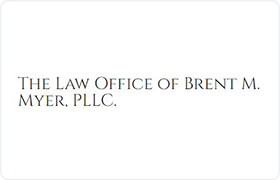Tarpon Springs Credit & Debt Lawyer, Florida
Sponsored Law Firm
-
 x
x

Click For More Info:
-
Law Office of Brent M. Myer, PLLC
27 SE Ocean Blvd Stuart, FL 34994» view mapBankruptcy & Debt Your Local Bankruptcy Attorney
Brent M. Myer has over 15 years of consumer bankruptcy experience and has represented both debtors and creditors in the past.
772-873-7794
FREE CONSULTATION
CONTACTTed Alan Barrett
Wills, Trusts, Credit & Debt, Bankruptcy
Status: In Good Standing Licensed: 35 Years
Alicen Marie Barrett
Mediation, Credit & Debt, Bankruptcy
Status: In Good Standing Licensed: 35 Years
Janis L. Rosser
Dispute Resolution, Business & Trade, Credit & Debt, Car Accident
Status: In Good Standing Licensed: 44 Years
Sherri Marie Stinson
Real Estate, Power of Attorney, Wills & Probate, Estate, Credit & Debt
Status: In Good Standing
Steven J Glaros
Family Law, Civil Rights, Contract, Credit & Debt
Status: In Good Standing Licensed: 19 Years
Brendan Russell Riley
Criminal, Credit & Debt, Car Accident, Corporate, Consumer Rights
Status: In Good Standing Licensed: 14 Years
John Kenneth Renke
Civil Rights, Contract, Credit & Debt, Personal Injury
Status: In Good Standing Licensed: 53 Years
Rebbecca Ann Goodall
Commercial Real Estate, Business, Credit & Debt, Bankruptcy
Status: In Good Standing Licensed: 10 Years
 Brent Myer Stuart, FL
Brent Myer Stuart, FL Practice AreasExpertise
Practice AreasExpertise
